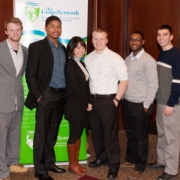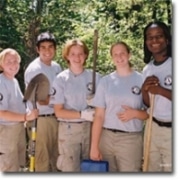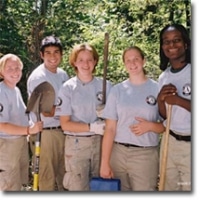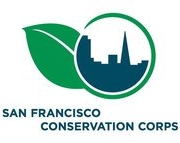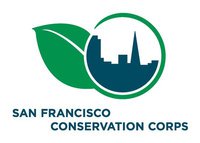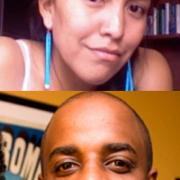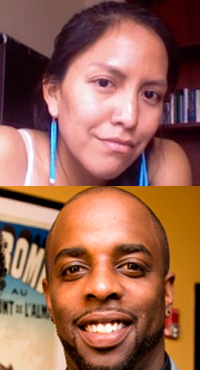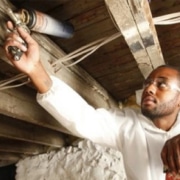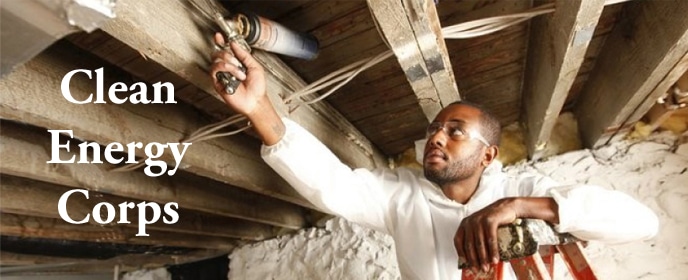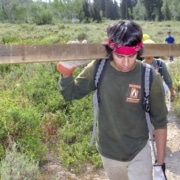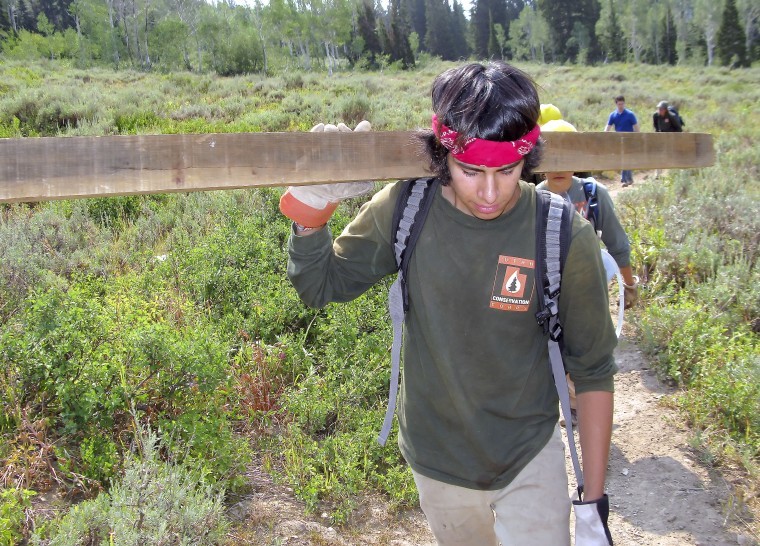Getting Things Started Right: 2011 National Conference Begins
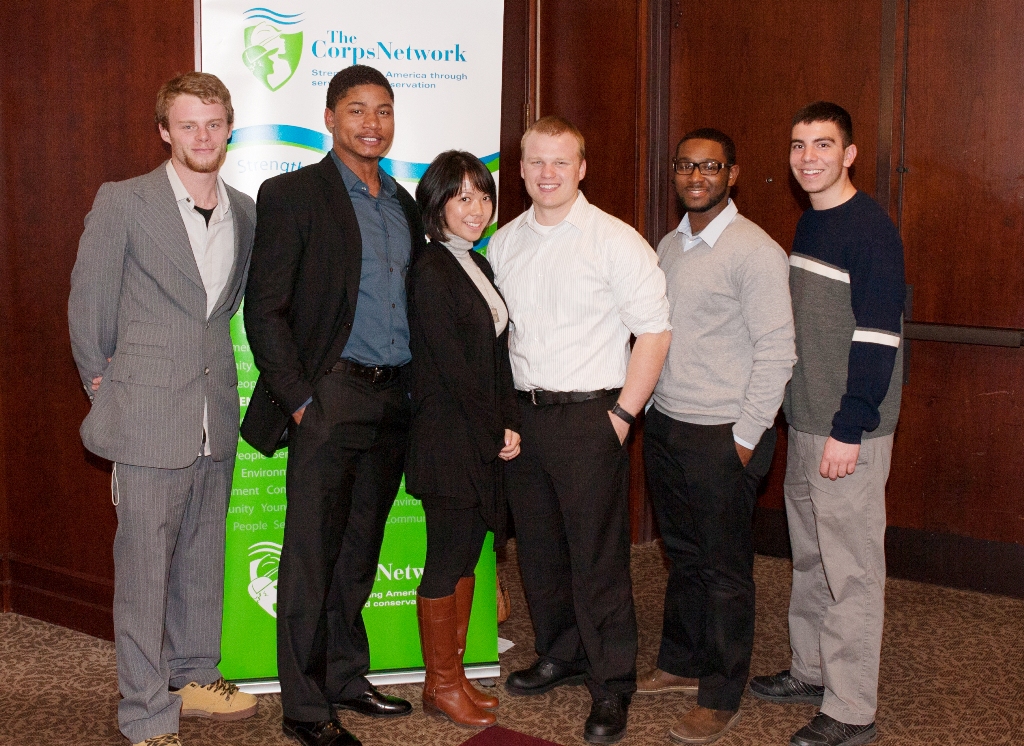
The 2011 Corpsmembers of the Year. From Left to Right: Tyler Rose of Coconino Rural Environment Corps (Arizona), De’Andre Alexander of Operation Fresh Start (Wisconsin), Mari TakemotoChock of KUPU (Hawaii), Christopher Thomas of California Conservation Corps, Andrew McKee of NYC Justice Corps (New York), and Oscar Marquina of Utah Conservation Corps.
The Corps Network opened the 2011 Annual Corps Forum with an ambitious schedule. After a warm welcome to attendees and a big thanks to Forum planners and sponsors, the audience was treated to a 7 minute video about the 6 primary stars of the Forum— the Corpsmembers of the Year.
After celebrating the Corpsmembers, Former Senator and Service Champion Harris Wofford gave a heartfelt tribute to his recently departed friend, Sargent Shriver. Shriver was the first director of the Peace Corps and was an adament supporter of National Service.
Next Denise Fairchild, the Executive Director of the Emerald Cities Collaborative, talked to Sally Prouty about her work and described how Service and Conservation Corps will play an important role in helping to retrofit many of America’s urban buildings to make them greener and more energy efficient.
Switching gears again, the trio of Mary Ellen Ardouny, Harry Bruell, and Gene Sofer provided an update about the state of politics in our nation’s Capitol. They talked about Congress’s desire to cut spending and what it would mean for Americorps. On a more positive note, they also described The Corps Network’s efforts to build federal partnerships and pass legislation that will benefit its members nationwide.
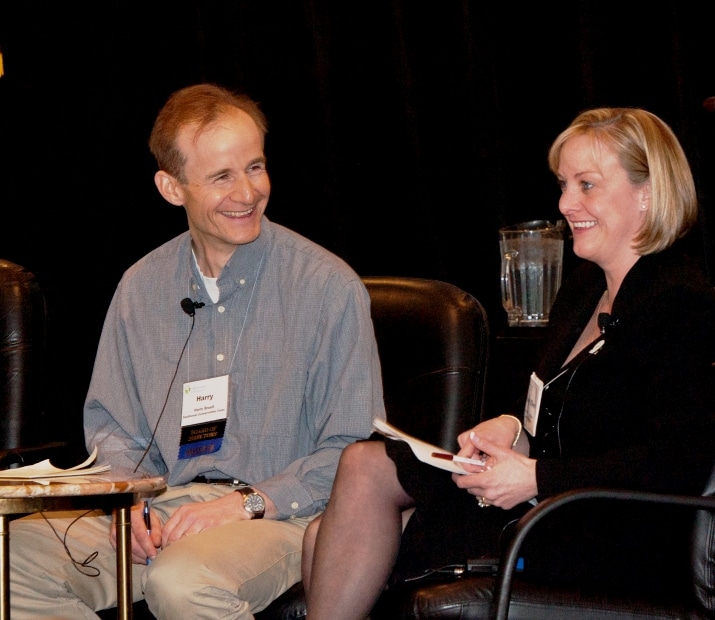
Harry Bruell and Mary Ellen Ardouny.
The Opening Session concluded with a surprise appearance from Mr. Peanut himself. He came to present a symbolic check that represented Planters’ investment in a new partnership with The Corps Network. Together, The Corps Network and Planters are creating urban parks in 4 cities that demonstrate our mutual commitment to improving communities. Afterward Mr. Peanut happily obliged an eager crowd by sticking around for photo opportunities.
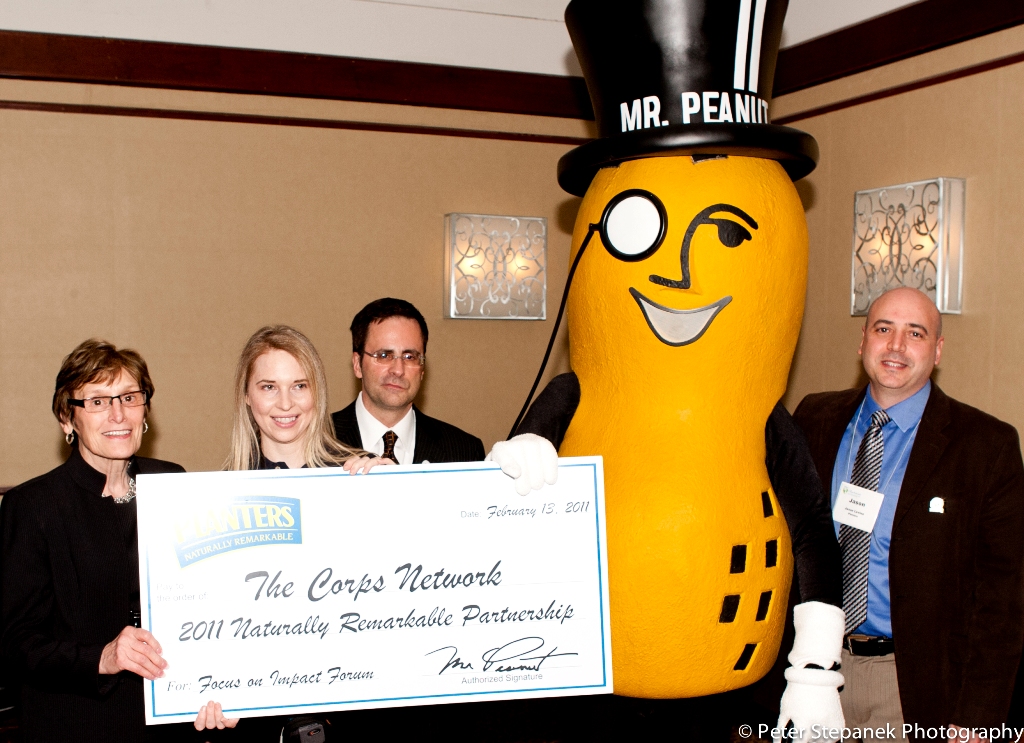
Mr. Peanut proudly poses with (left to right): Sally Prouty, Executive Director of The Corps Network, Mr. Peanut’s Sidekick, James Jones, Senior Vice President at The Corps Network, and Jason Levine, Director of Marketing for Planters.

